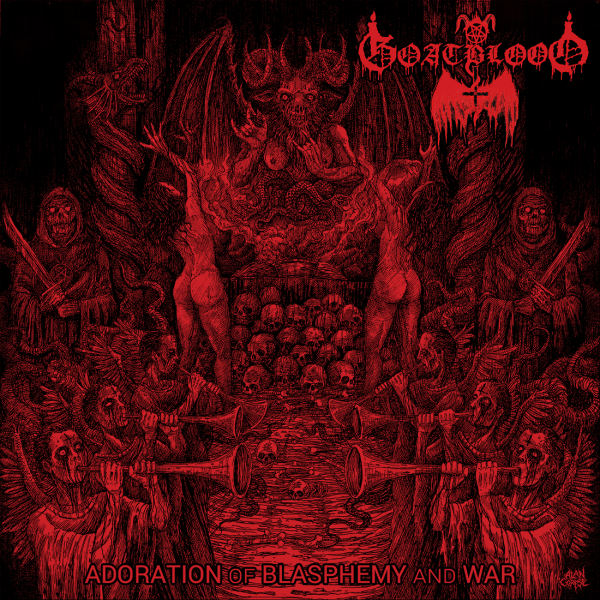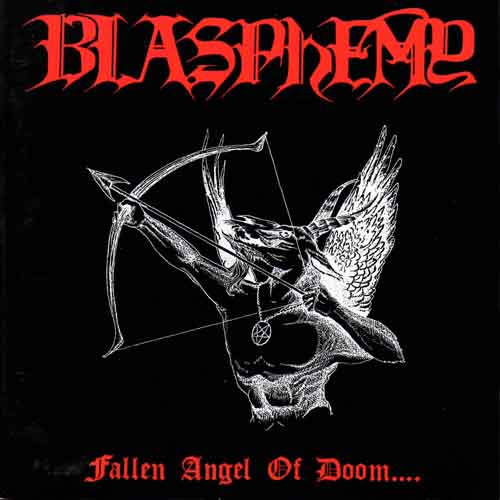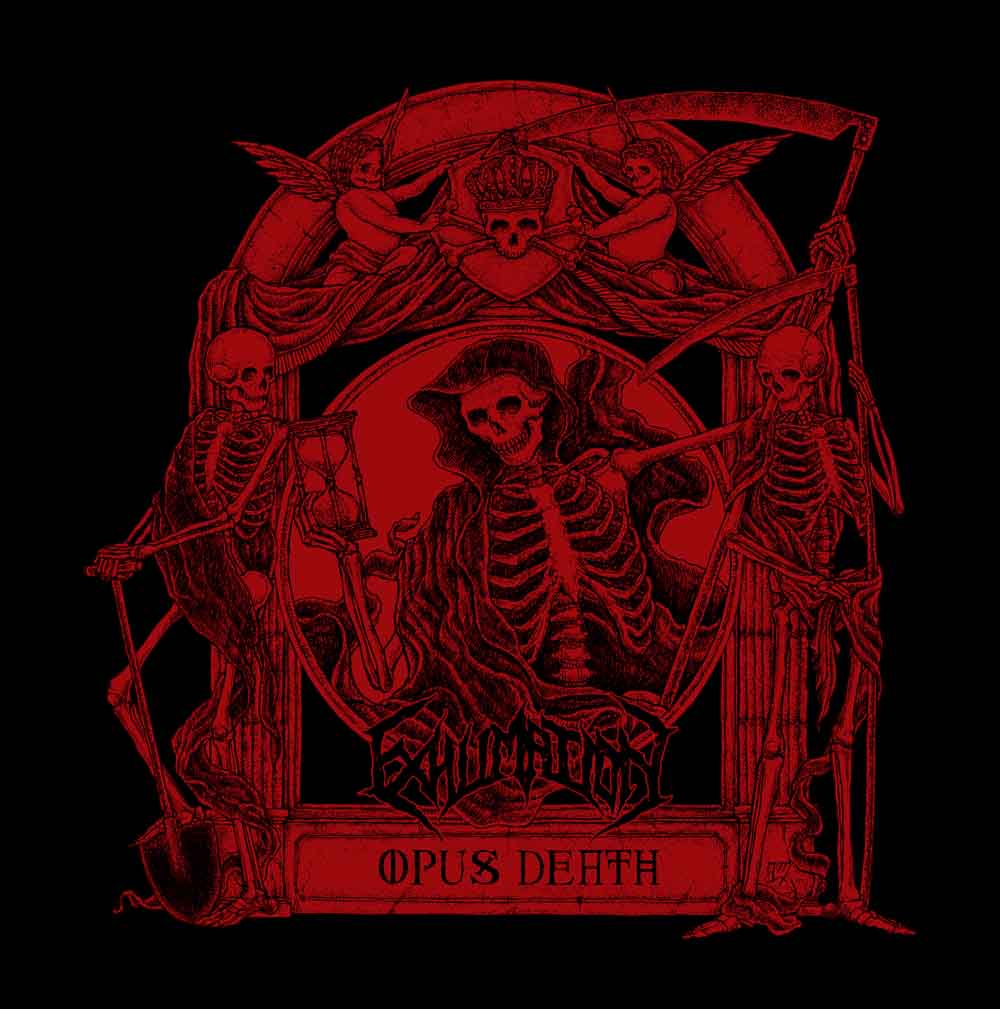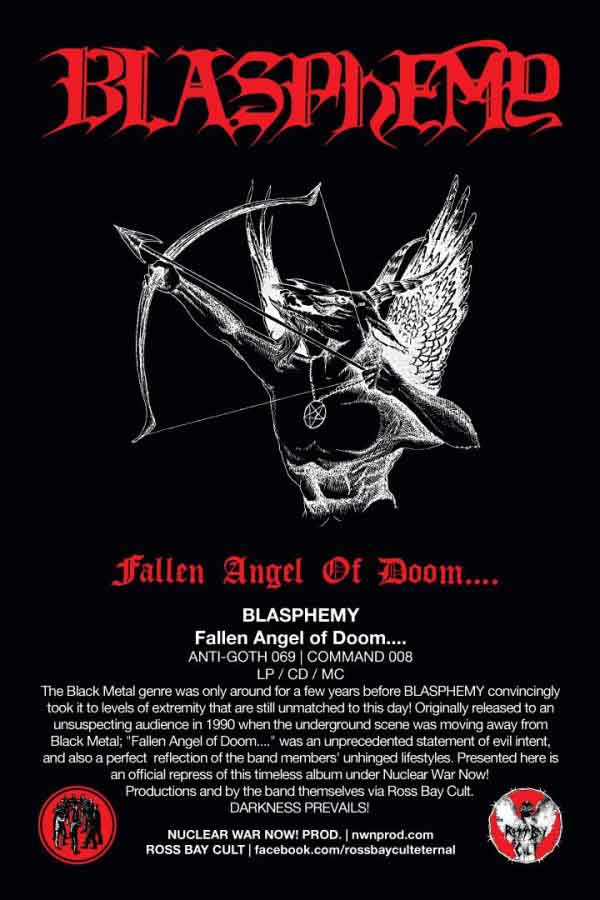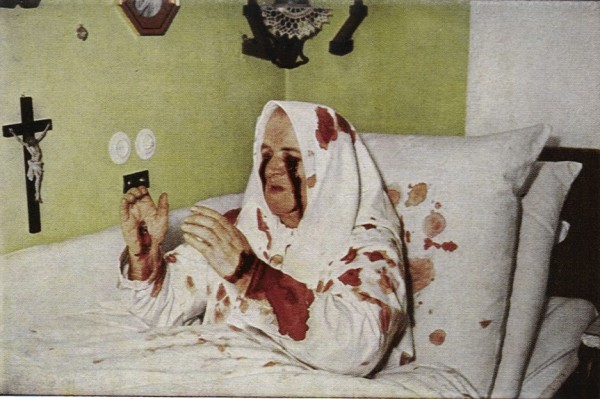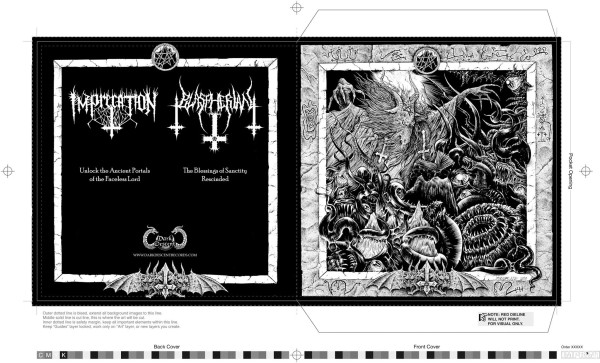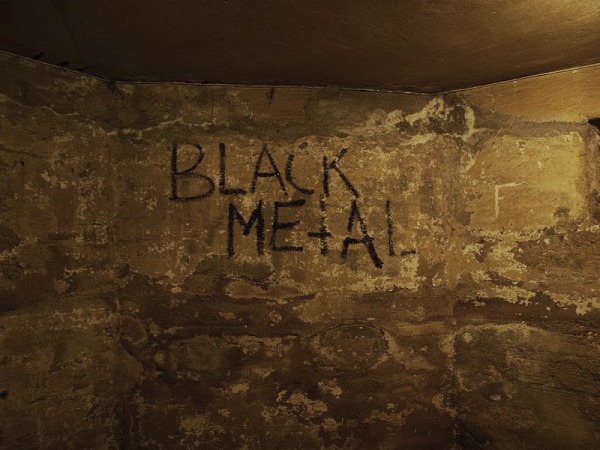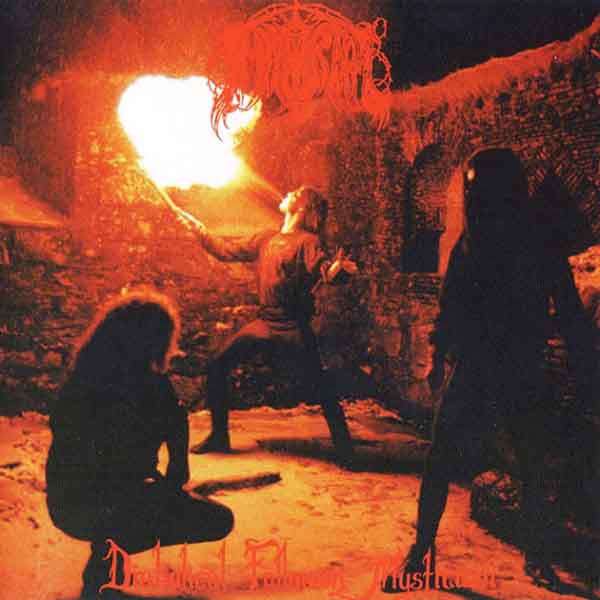
Trying to discern a coherent ideology or philosophy behind the Black Metal movement,even if we’re only considering bands from a specific time and location, is automatically something of a losing proposition. Each band has its own idiosyncrasies which often conflict with the principles of their peers; bands’ philosophical stances are often transmitted only through totally over-the-top, gonzo lyrics; and, in a lot of cases, the bands were just making shit up as they went along without really thinking through what they were espousing. That said, there are still themes, principles, and behaviors that are common to multiple artists within the genre, and it’s even possible to sketch out rough groupings from these shared characteristics. In this article, I’m going to explore one of the bigger divides stemming from the early Scandinavian black metal movement: Satanic black metal and Norse black metal. Based on the philosophies of these groups, I think it’s even possible to project the future trajectories of these genres as social movements.
One of the biggest philosophical distinctions in Black Metal is probably between Satanic Black Metal and Norse Black Metal. Here are the differences in really, really broad strokes:Satanic black metal developed first, and as time went on pagan themes were often incorporated into the work of Satanic Black Metal bands. The two schools ended up splitting, however; adherents of Norse |Black Metal (many of whom previously endorsed Satanic ideologies) openly disparaged Satanism as juvenile and went off to do their own thing. Satanic Black Metal musicians, to whom Black Metal was defined entirely by its devotion to Satan, viewed the bands singing about Vikings and Odin as heretics or traitors. In this article, I’ll first discuss Norse Black Metal and its prospects as a genre before moving onto Satanic Black Metal, which, I think, has a more fruitful future ahead of it.
Norse Black Metal (hence, N.B.M.) musicians profess a devotion to the mythology of the Germanic tribes who inhabited northern Europe during the first millennium CE. Like Satanic Black Metal, N.B.M. is hostile to the Abrahamic religions, especially Christianity, which it considers an oppressive, invasive religion. N.B.M. musicians frequently lament the mass conversion of northern Europe to Christianity from roughly 800-1200 CE, and the destruction of pagan communities, art, and ways of life that this demographic shift brought with it. N.B.M.’s adherents see themselves as the only ones in their society who haven’t been brainwashed into giving up their true cultural heritage, and they fight to try to restore the old ways and kick the foreign religions out. Varg Vikernes, the musician behind Burzum and the murderer of , is a prolific author on the subject and is probably the single most prominent figure in both the musical movement and the related pan-European political arm, The Heathen Front.
N.B.M. musicians, strongly influenced by the unabashedly racist (or “racialist,” as he tends to call himself) Vikernes, often draw the lines between enemy and friend among ethnic and nationalist lines, which tends to make the genre insular, exclusive, and marginal. Ultimately, this is its greatest weakness: no matter how magnificent its music is (and don’t get me wrong, there is some great N.B.M. music out there), the N.B.M. ethos is perpetually preaching to the choir. By rooting its philosophy and social organization so deeply in considerations of ethnic and national divisions, rather than opening it to any like-minded individuals, N.B.M. has set a hard cap on its spread and influence within the wider global culture.
If you’re not a “Nordic, heterosexual [with] a Pagan ideology,” N.B.M. doesn’t really have much to offer you beyond the actual aesthetics of the music (and, to be fair, Vikernes has usually kept his political stances out of Burzum’s music; as he says, there isn’t anything in the music itself that would stop a “a Christian-born black gay feminist converted to Judaism… or worse; a Muslim” from enjoying one of his records, that certainly doesn’t apply to all N.B.M. bands). In terms of the philosophy espoused by N.B.M. musicians, if you’re not down with thinly-veiled racist and nationalist positions, you’ll probably not be able to stomach much N.B.M. rhetoric.
For this reason, it’s unlikely that N.B.M. will continue to grow much outside of its target demographic in northern Europe. Even the recent upswing of nationalist, xenophobic sentiment in Europe holds relatively little promise for N.B.M., given its radical opposition to the Christian values that most conservative European nationalists hold near and dear. Without a radical reorientation of N.B.M.’s priorities and inclusivity, it’s likely the genre will continue to grow more and more isolated and radical until it collapses into irrelevance.
Satanic Black Metal (“S.B.M.” or “Orthodox Black Metal,” as it’s sometimes been called) has, I think, a much more interesting future ahead of it. Drawing from the occult aesthetics of first-wave black metal bands like Venom, Bathory, Celtic Frost, and King Diamond, S.B.M. coalesced in Norway in the late 80’s, employing over-the-top, almost absurdly self-serious devotion to Satan and evil for evil’s sake. The Oslo-based S.B.M. band Mayhem is arguably most directly responsible for the rise of the movement, with founding member Øystein “Euronymous” Aarseth and vocalist Per “Dead” Ohlin initially crystallizing the movement’s philosophy and aesthetics, respectively.
Euronymous was more or less solely responsible for developing the misanthropic, elitist, self-consciously ‘evil’ streak that came to characterize this genre. He saw himself as the de facto leader of the entire Norwegian black metal movement, and he established a record store, Helvete, and a record label, Deathlike Silence, around which much of the early Scandinavian scene revolved. Aarseth embraced the Euronymous persona, sporting a full-on Fu Manchu style mustache and portraying himself as some sort of snooty, mysterious, Satanic noble who determined who was and wasn’t “true” black metal.
Whereas first wave black metal bands could often be vaguely tongue-in-cheek in their invocations of Satanism, S.B.M. was apparently deadly earnest; Euronymous served as a kind of whip for the Scandinavian scene, enforcing strict self-seriousness upon the genre. A second-wave black metal musician could never break character, or they would be immediately branded as posers chasing the Black Metal trend and ostracized. Helvete’s status as a genre mecca afforded Euronymous a mechanism for creating an in- and out-group, thereby allowing him to enforce a certain amount of ideological orthodoxy within the early Black Metal scene.
While this level of loose ideological control was possible, it’s still hard to discuss the early S.B.M. bands’ actual ideologies, because most of their “philosophy” was essentially performative. A lot of what the musicians ended up saying in interviews was ad-libbed to further develop the reputation (and ultimately the myth) of the black metal scene. Whatever seemed “extreme” or “brutal” was adopted, which included everything from Dead’s self-mutilation during sets to mounting impaled pigs’ heads on stage to burning down historic medieval churches (it’s worth noting that Vikernes, who was Mayhem’s bassist at the time, is widely considered to be responsible for kicking off Black Metal’s arson campaign). The bands reveled in media attention and they wanted to portray themselves as mysterious, dangerous figures. As such, they were willing to say whatever seemed most likely to give that impression and keep them in the spotlight. Much of what was said in interviews was said primarily for shock value, with little or no belief behind it, and some things which were initially stated for shock value later became dogma.
To put it crassly, the individuals creating this music were kids cobbling shit together as they went along. I don’t say that to disparage their work (in fact, as a Satanist myself, I’ve been prompted to confront many interesting ideas through their music and actions), but rather to stress that any discussion of these bands’ ideas necessarily entails a certain amount of piecing together half-formed, sometimes contradictory ideas. There’s no authoritative Satanic Black Metal manifesto out to neatly enumerate the core tenets and principles of the genre. In fact, there isn’t even a canon of philosophical remarks; it falls to fans to extract, interpret, and build on the incomplete, scattered ideas found in S.B.M. works.
As for what I personally find compelling in Orthodox Black Metal philosophy, I think its emphasis on dogged, uncompromising contrarianism is underappreciated. Norway in the 80s and 90s was an incredibly socially homogenous society, and the Scandinavian Black Metal movement grew in opposition to that fact. It starkly inverted the values and moral beliefs of society, forging a bizarre, counter-intuitive way of life: whatever society has deemed “evil” was to be pursued by Black Metal musicians as the highest good. It wasn’t hedonism or objectivism or any sort of LaVeyan bullshit like that; it was literally evil for evil’s sake.
Considering the ubiquity of Abrahamic religion in the western world, Satan is a natural figurehead for such a movement. If society’s very concepts of good and evil are largely derived from Christian morality, embracing “evil” doesn’t necessarily entail immoral behavior, but rather a rejection of the moral codes imposed by conventional social and religious authority. This type of Satanism is radically individualist, and it encourages idiosyncratic moral reasoning, non-conformity, and rejection of blind deference to authority. If you strip away all of the incendiary shock tactics and cheap nihilism of the early Norwegian movement, this is, I think, the most potent philosophical strand conveyed through it.
It is, I think, largely due to this egalitarian, individualist tendency that S.B.M. has been proliferating in recent years. As education improves world-wide and individuals become more and more secularly oriented, this brand of Satanism becomes more attractive to a wider segment of the population, who have been frustrated and stymied by outdated, authoritarian religious sentiment. Satanism can serve as a unifying banner dedicated to checking the role of traditional religions in society and politics. The Satanic Temple, for instance, has organized numerous campaigns in the United States in recent years to promote progressive political action and minimize the religious right’s ability to legislate morality. Its lobbying efforts and lawsuits have helped stop attacks on women’s reproductive rights, efforts to sneak religion into public schools, and restrictions on same-sex marriage. Because they are defined in opposition to the strict, authoritarian morality of the Abrahamic religions which still plays an undue role in political and social affairs in nominally secular countries, Satanic movements like these are increasingly becoming attractive means of political and ideological organization, especially for those most directly affected by religion’s influence.
This streak of Satanic thought is not exclusive to secular, western society, though; in fact, it holds the most promise in less permissive, more theocratic countries. In recent years a small but growing number of musicians in the Middle East have begun to play Black Metal as a means of expressing individual freedom and attacking the oppressive religious society around them. Three years ago, a woman-fronted black metal band called Janaza, purportedly from Iraq, made news across the web for its track, “Burn The Pages of Quran.” While doubts about Janaza’s authenticity have surfaced, there are plenty of real Black Metal bands in strongly Islamic countries, and the principle behind them is still compelling: Islam is an Abrahamic religion closely related to Christianity, and in Middle-Eastern countries it plays an even greater social and political role than Christianity does in the west. It’s natural, then, for dissidents in these societies to employ Black Metal to oppose the repressive religious tendencies of their society in the same way, albeit with much higher stakes, given that members of these bands could face the death penalty for blasphemy if their identities were ever discovered. In an interview with Vice, Mephisto of the Saudi Arabian black metal band Al-Namrood (“Non-Believer”), expressed the appeal of black metal in predominantly Islamic countries:
Christianity nowadays is passive. The church doesn’t control the country. I think whatever rage that people have got against the church cannot be compared with Islamic regimes. You can criticize the church under freedom of speech in European countries, but you can’t do that in Middle Eastern countries. The system doesn’t allow it. Islam has inflicted more authority on the Middle East than any other place in the world. Every policy has to be aligned with sharia law, and this is happening right now in 2015. We know that, 400 years ago, brutality occurred in the name of the church, but the same is happening right now in this age with Islam.
Recent events like the Arab Spring have shown that there is a growing population in traditionally Islamic societies that wants to catch up with the rest of the world’s secularism and individual freedom. Since conventional means of dissidence are outlawed, Satanic Black Metal, as a marginal, outsider movement itself, seems to be the perfect outlet for this dissatisfaction. In fact, I wouldn’t be very surprised (or dissatisfied, for that matter) to read about a series of ultra-conservative mosque burnings in the near future. Whether it’s against conservative Christianity or radical Islam, free-thinking individualists worldwide can unite under the banner of Satanic Black Metal to work for a world free of theocracy and religious authoritarianism.
All in all, it’s an exciting time for Black Metal. With the rise of online distribution and music sharing, it’s never been easier to disseminate new albums and spread niche genres like Black Metal across the globe. While I don’t think Norse Black Metal is going to have much enduring appeal without opening itself up to the rest of the world, the Satanic Black Metal movement seems to be waxing, and I’m excited to see what comes out of it, both musically and socially.
33 CommentsTags: aesthetics, al-namrood, Black Metal, blasphemy, Christian, elitist, Euronymous, ideology, islam, LaVeyan, Mephisto, misanthropic, pagan, Philosophy, Quran, Satanic and Norse Black Metal: A Comparative Examination of Philosophy and Staying Power, Scandinavian, varg vikernes
